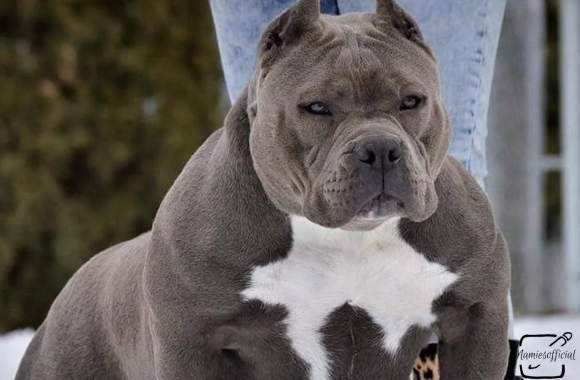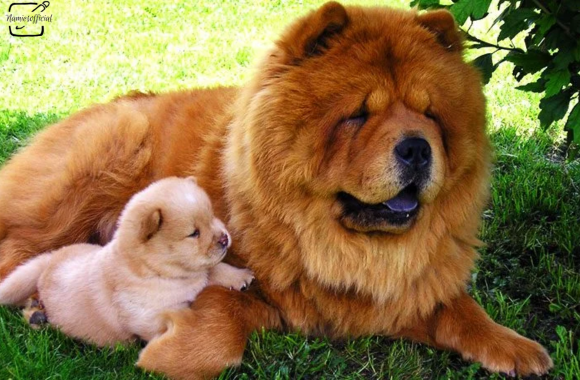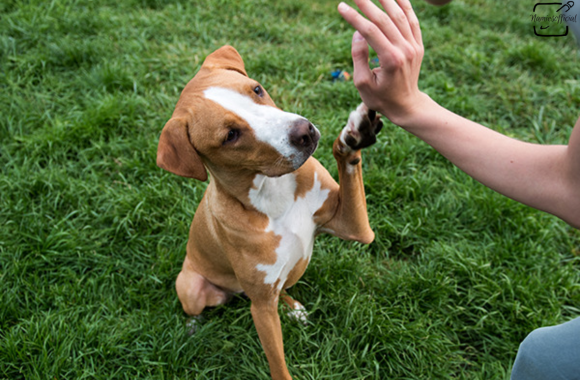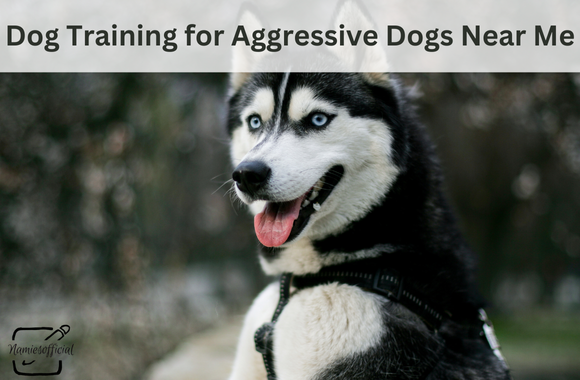Dealing with an aggressive dog can be a stressful and challenging experience for pet owners. Whether your dog is displaying aggressive behavior toward other dogs, strangers, or even family members. Aggression in dogs can stem from a variety of factors, including fear, territorial instincts, lack of socialization, or past trauma. Fortunately, professional dog training can help mitigate these behaviors and ensure your dog becomes a well-mannered companion, along with that dog training is extremely important to ensure safety of your pet and those around them.
If you’re looking for “dog training for aggressive dogs near me,” this article will provide insights on what to look for, types of training available, and how to find the right trainer to address your dog’s specific needs.
Understanding Aggression in Dogs
Before diving into training options, it’s important to understand the root causes of aggression. Aggressive behavior can manifest in different forms, such as:
- Fear Aggression: Dogs that are frightened may react aggressively as a defense mechanism.
- Protective Aggression: Some dogs become territorial and aggressive when they feel the need to protect their family or environment.
- Possessive Aggression: Dogs may show aggression when they feel their food, toys, or space are threatened.
- Frustration-based Aggression: When a dog is unable to reach a desired object or goal (e.g., other dogs or animals), frustration can turn into aggressive behavior.
- Pain-induced Aggression: A dog in pain may act aggressively if touched or approached in certain ways.
Understanding the cause of aggression is key to developing an effective training plan. Working with a qualified trainer will help you determine the cause of your dog’s behavior and develop strategies to address it.

Why Professional Dog Training Is Important for Aggressive Dogs
While some aggressive behaviors may seem manageable, they can escalate over time if not addressed properly. Professional dog trainers are equipped with the knowledge and skills to handle challenging situations, and they use positive reinforcement methods to correct behavior in a humane, safe, and effective way. Here’s why you should consider professional help for your aggressive dog:
1. Expert Knowledge and Experience
Trainers with experience working with aggressive dogs understand the nuances of canine behavior and are familiar with the most effective techniques to address aggression. They can assess your dog’s behavior and tailor a training program specific to their needs.
2. Safety
Aggressive dogs can pose a danger to themselves, other animals, and people. Working with a professional ensures that safety is a priority, and proper control techniques are used. Trainers know how to manage aggressive behavior without putting anyone at risk.
3. Effective Results
Professional dog trainers have a proven track record of success in dealing with aggression. They use structured programs that include obedience training, desensitization, counter-conditioning, and other methods that are proven to reduce aggressive tendencies.
4. Behavioral changes
Aggression is often a learned behavior that can be changed over time with consistent training. A trainer will help you understand your dog’s triggers and teach you how to respond to aggressive situations in a way that helps redirect your dog’s energy toward more positive behaviors.
What to Look for in a Dog Trainer for Aggressive Dogs
When searching for a trainer near you, it’s important to ensure that the trainer is experienced with aggressive dogs. Here’s what to look for:
1. Certification and Credentials
Look for trainers who are certified by reputable organizations such as the American Kennel Club (AKC), the International Association of Canine Professionals (IACP), or the Certification Council for Professional Dog Trainers (CCPDT). These credentials indicate that the trainer has the proper education and experience to handle aggressive dogs.
2. Experience with Aggressive Dogs
Not all trainers are equipped to handle aggressive behavior. It’s essential to choose a trainer who has worked specifically with aggressive dogs and understands how to handle them safely and effectively.
3. Positive Reinforcement Techniques
A good trainer will use humane methods, such as positive reinforcement, to reward good behavior. Avoid trainers who use aversive techniques, like shock collars or harsh corrections, as these can worsen aggression and damage the trust between you and your dog.
4. Customized Training Plans
Every dog is different, and a one-size-fits-all approach won’t work for aggressive dogs. A qualified trainer will assess your dog’s specific needs and develop a customized training plan that focuses on addressing the root cause of the aggression.

5. References and Reviews
Don’t hesitate to ask for references or check online reviews to learn about other dog owners’ experiences with the trainer. Positive feedback and successful case studies can give you confidence in the trainer’s ability to handle your dog’s aggression.
Types of Training Programs for Aggressive Dogs
There are several types of dog training programs that may help reduce aggression in dogs, depending on the severity and nature of the behavior. Here are some options:
1. Private One-on-One Sessions
Private sessions are often the most effective when dealing with aggressive dogs. They allow the trainer to focus on your dog’s specific issues and provide hands-on guidance in a controlled environment. Private lessons are also ideal for dogs who may be reactive or overly stressed in group settings.
2. Group Classes
Some trainers offer group classes for dogs with mild aggression issues. While group classes can help with socialization and basic obedience, they may not be suitable for dogs that are highly aggressive or fearful. If you choose a group class, make sure the trainer is experienced in handling aggressive dogs in a group environment.
3. Board and Train Programs
In some cases, owners opt for board and train programs, where the dog stays at the trainer’s facility for an extended period to receive intensive, one-on-one training. This can be beneficial for dogs with severe aggression issues that require more concentrated attention and training.
4. Behavioral Therapy
Some trainers specialize in behavioral therapy for dogs with aggression, using techniques like desensitization (gradually exposing the dog to triggering situations) and counter-conditioning (changing the dog’s emotional response to triggers).

How to Find Dog Training for Aggressive Dogs Near Me
Finding the right dog trainer for your aggressive dog involves a few simple steps:
- Search Online: Use search terms like “dog training for aggressive dogs near me” or “aggressive dog trainer in your city” to find local trainers. Websites like Yelp, Google Reviews, and the Better Business Bureau can provide helpful insights into trainers’ reputations.
- Ask for Recommendations: Reach out to veterinarians, pet groomers, or local dog parks for recommendations. Many dog owners may have firsthand experience with trainers in your area.
- Visit Local Training Centers: Many areas have dog training centers that offer specialized programs for aggressive dogs. Visit their websites to learn more about their services, methods, and success rates.
- Interview Trainers: Once you have a list of potential trainers, schedule consultations to discuss your dog’s behavior and the trainer’s approach. Ask questions about their experience with aggressive dogs, training methods, and success stories.
- Observe a Training Session: Some trainers will allow you to observe a class or a private session before committing. This is a great way to see their training style in action and determine if it’s a good fit for you and your dog.
FAQS
1.What is the best approach to train an aggressive dog?
The best approach for training an aggressive dog involves positive reinforcement, behavior modification techniques, and sometimes professional help from a certified dog trainer experienced with aggression. Identifying the triggers of aggression is key to addressing the issue safely.
2.How do I find a qualified trainer for aggressive dogs near me?
To find a qualified trainer, search for certified dog trainers or behaviorists who specialize in aggression. Look for trainers with certifications from reputable organizations such as the International Association of Canine Professionals (IACP) or the Certification Council for Professional Dog Trainers (CCPDT)
3.Can an aggressive dog be rehabilitated through training?
Yes, many aggressive dogs can be rehabilitated through proper training and behavior modification. However, the outcome depends on the dog’s individual temperament, the underlying cause of the aggression, and the consistency of training
Conclusion
Dog Training an aggressive dog requires patience, consistency, and professional guidance. By working with an experienced trainer who uses positive reinforcement methods, you can help your dog overcome aggression and build a stronger, safer relationship. Start by researching trainers near you, checking credentials, and ensuring their approach aligns with your dog’s needs. With the right help, your dog can learn to manage their aggression, leading to a happier and more peaceful home for both of you.
Related Content:
get more information here

